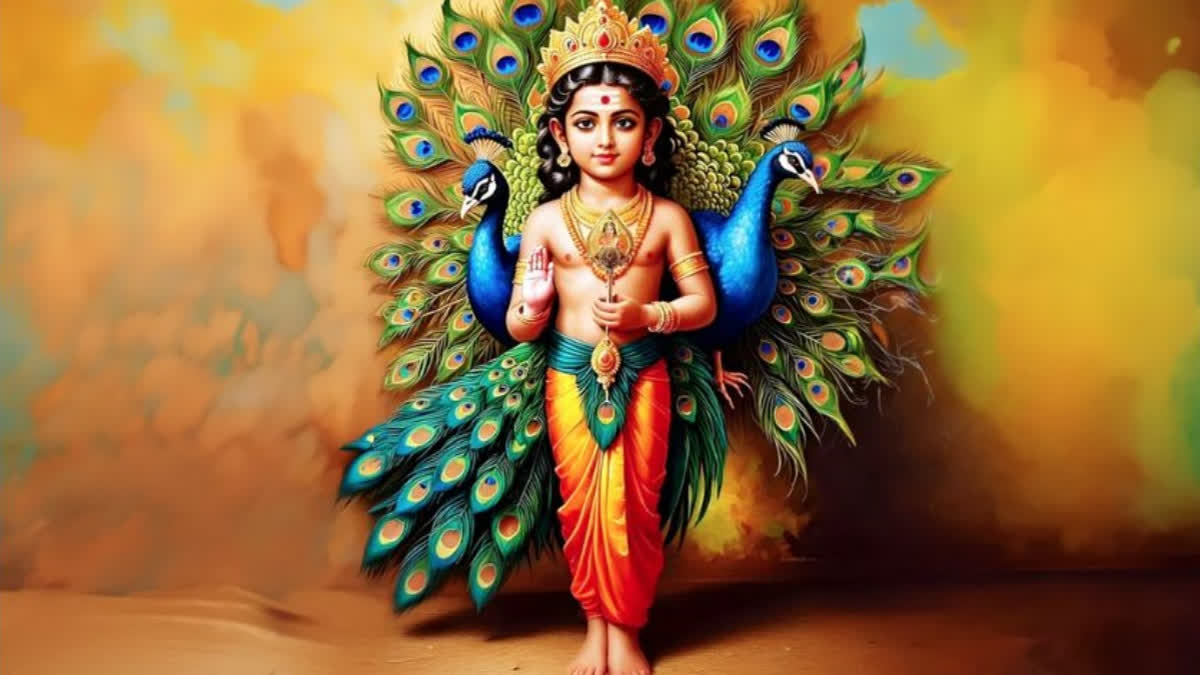Every year, as twilight settles over Tamil Nadu in early November, the air thickens with chants and the unmistakable thrill of an ancient story retold. Surasamharam is the festival dedicated to Lord Murugan’s victory over the demon Surapadman.
This year, Surasamharam falls on November 7, 2024, concluding six intense days of rituals and fasting that make up the Skanda Shashti festival. As the sun dips below the horizon, Tamil Nadu’s streets will fill with devotees, traditional drums, and the energy of Lord Murugan’s story.
What Is The Legend Of Surasamharam?
In Tamil folklore, the mighty demon Surapadman ruled with cruelty, challenging the peace and harmony of the world. Seeing the disruption of peace, the gods beseech Murugan, the son of Shiva and Parvati to confront the demon. Armed with a divine spear gifted by his mother, Murugan goes to battle against Surapadman, ultimately splitting the demon into two. Instead of total destruction, Murugan transforms Surapadman into a peacock and a rooster, creatures that become his companions. It’s a poetic end to a battle.
Date, Time and Rituals of Surasamharam 2024
Surasamharam is no ordinary festival. For devotees, it’s an experience that unfolds with each day of the six-day Skanda Shashti festival. This year, Surasamharam climaxes on November 7, with rituals reaching their peak in the evening. At temples like Tiruchendur, Thirupparankundram, and Palani, huge crowds gather to watch reenactments of Murugan’s epic battle. The build-up includes fasting and special pujas, leading up to the climactic, theatrical reenactment of Murugan’s triumph over Surapadman.
Theatrical Display of Faith
What makes Surasamharam captivating isn’t just the story, it’s the way the story is told. Devotees, dressed as warriors wielding Murugan’s iconic “vel” (spear), recreate the final battle. It’s a pulse-pounding reenactment where Murugan’s confrontation with Surapadman is dramatised with all the intensity of a live-action epic.
The air vibrates with chants of “Muruganukku Arohara!” (Praise be to Lord Murugan), as the demon effigy is symbolically destroyed, signifying the triumph of good. Some devotees even take it a step further with the Thee Mithi ritual, walking on hot coal as a display of their devotion.
Tamil Nadu’s people see in Lord Murugan’s victory a belief that darkness, however strong, is always conquerable. For younger generations and older devotees alike, this festival keeps alive a connection to their roots. It’s why people return to the state every year, not just to witness Murugan’s battle, but to find a piece of their own story in his. The victory of Murugan over Surapadman is a metaphor for the victory over our own impulses, doubts, and fears.



